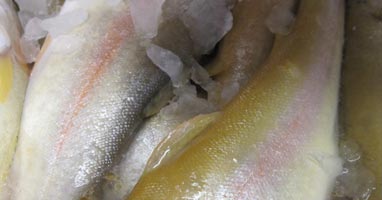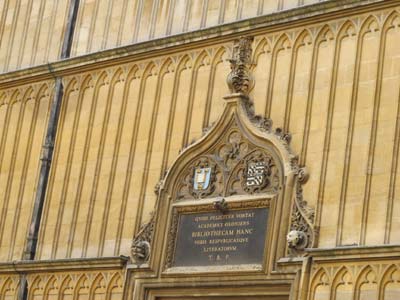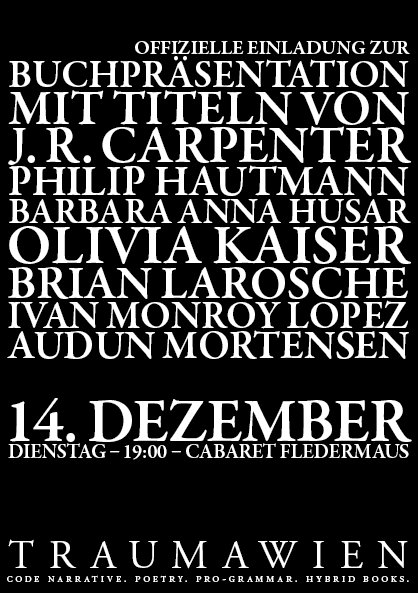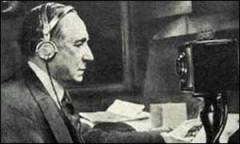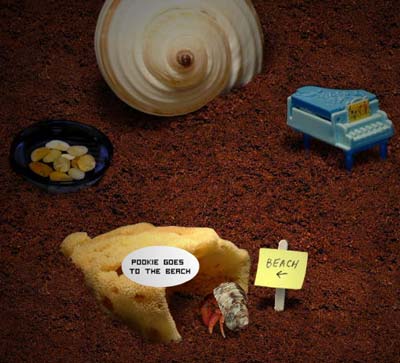Two of my web-based works – Entre Ville and in absentia – are included in the Electronic Literature Collection Volume Two, which launched in February 2011. [Prese Release]
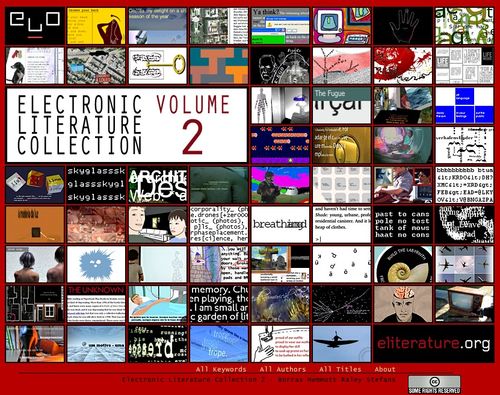
I’m thrilled that Entre Ville and in absentia appear together in this collection. In many ways, they are the before and after pictures of my old neighbourhood, Mile End, Montreal, where I lived for seventeen years.
Entre Ville was commissioned in 2006 by OBORO, an artist-run centre in Montreal, on the occasion of the 50th anniversary of the Conseil des Arts de Montreal. Although I had lived in Montreal for 15 years at the time of the commission, Entre Ville was my first major work about my adopted city. It took me that long to learn the vocabulary. I don’t mean French, or Greek, Italian, Portuguese, Yiddish or any of the other languages spoken in my neighbourhood. I refer, rather, to a visual, tactile, aural, sensorial vocabulary. My home office window opens into a jumbled intimacy of back balconies, yards, gardens and alleyways. Daily my dog and I walk through this interior city sniffing out stories. Poetry is not hard to find between the long lines of peeling-paint fences plastered with notices, spray painted with bright abstractions and draped with trailing vines. Entre Ville is a web-based heat-wave poem presented in the vernacular of my neighbourhood, where cooking smells, noisy neighbours and laundry lines crisscross the alleyway one sentence at a time.
In an intimacy
born of proximity
the old Greek lady and I
go about our business.
Foul-mouthed for seventy,
her first-floor curses fill
my second-floor apartment;
her constant commentary
punctuates my day.
Six months after the launch of Entre Ville, the “star” of Entre Ville, “the old Greek lady,” was evicted from the apartment where she and her husband had lived for twenty-three years. Many long-time low-income tenants were being forced out of the neighbourhood. Fiction was the only way I felt I could give voice to their stories. Our stories – I felt certain my time would come soon enough.
in absentia is a multi-authored multi-lingual site-specific web-based writing project which addresses issues of gentrification and its erasures in the Mile End neighbourhood of Montreal. Faced with imminent eviction, I began to write as if I was no longer there, about a Mile End that was no longer there. I manipulated the Google Maps API to populated “real” satellite images of my neighbourhood with “fictional” characters and events. in absentia is a web “site” haunted by the stories of former residents of Mile End, a slightly fantastical world, a shared memory of the neighbourhood as it never really was but as it could have been. in absentia was created in 2008 with the support of the Canada Council for the Arts. It was presented by DARE-DARE Centre de diffusion d’art multidisciplinaire de Montréal. It launched June 24, 2008. New stories were added over the summer, in English and French. A closing party was held in conjunction with the launch of my novel, Words the Dog Knows, (conundrum press), at Sky Blue Door, November 7, 2008.
This is the second collection published by the Electronic Literature Organization. The Electronic Literature Collection Volume One, edited by N. Katherine Hayles, Nick Montfort, Scott Rettberg and Stephanie Strickland, also included one of my works – The Cape. The long-awaited Electronic Literature Collection Volume Two, edited by Laura Borràs, Talan Memmott, Rita Raley, and Brian Kim Stefans, includes 63 works from Austria, Australia, Catalonia, Canada, Colombia, France, Germany, Israel, The Netherlands, Portugal, Peru, Spain, UK, and USA; written in Catalan, Dutch, English, French, German, Portuguese, and Spanish; Flash, Processing, Java, JavaScript, Inform, HTML, and C++.
ELC2 speaks to both the continuity as well as the bright future of electronic literature. The works include many of the emerging categories of e-lit: mash-ups, geolocative, codework, as well as “traditional” and evolving forms such as hypertext, chatbots, and interactive fiction. The authors list presents readers with both veterans and newcomers to the field.
Electronic Literature Collection Volume Two

